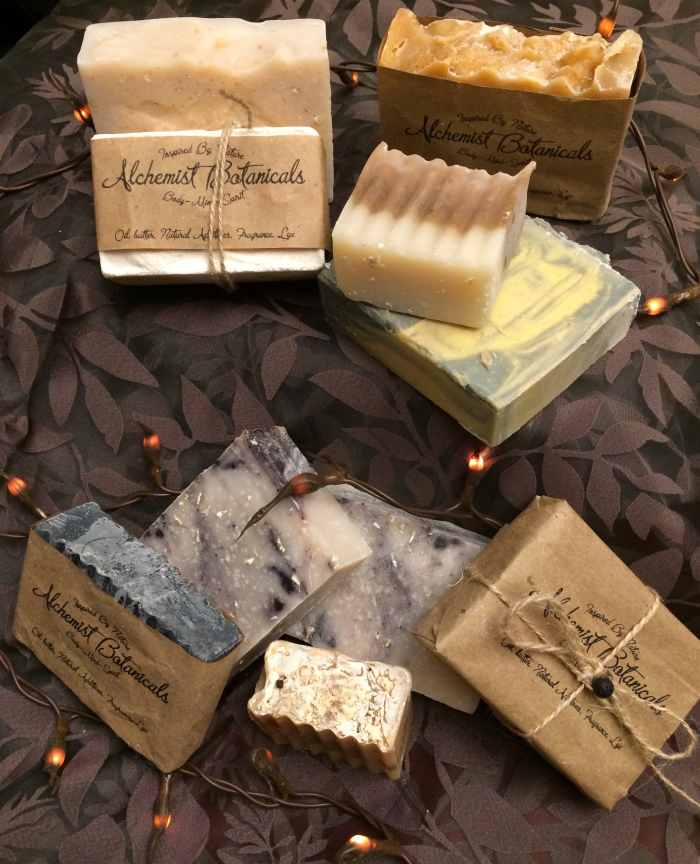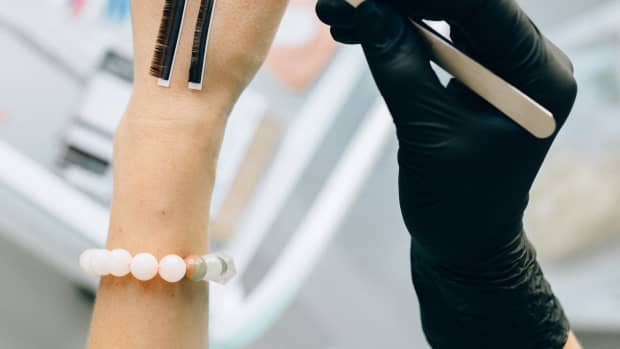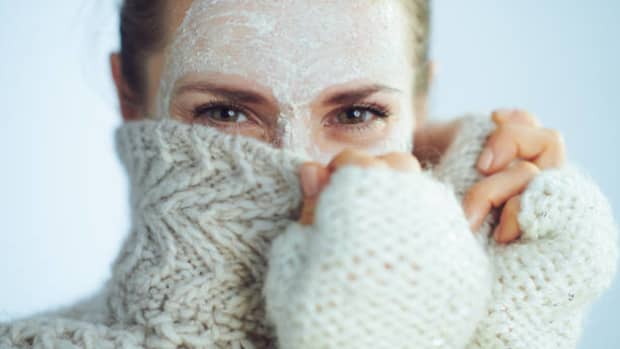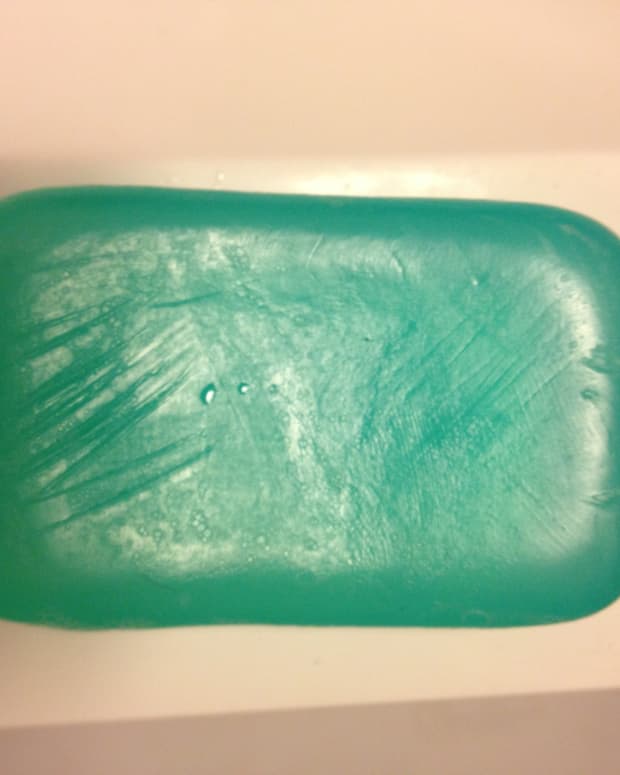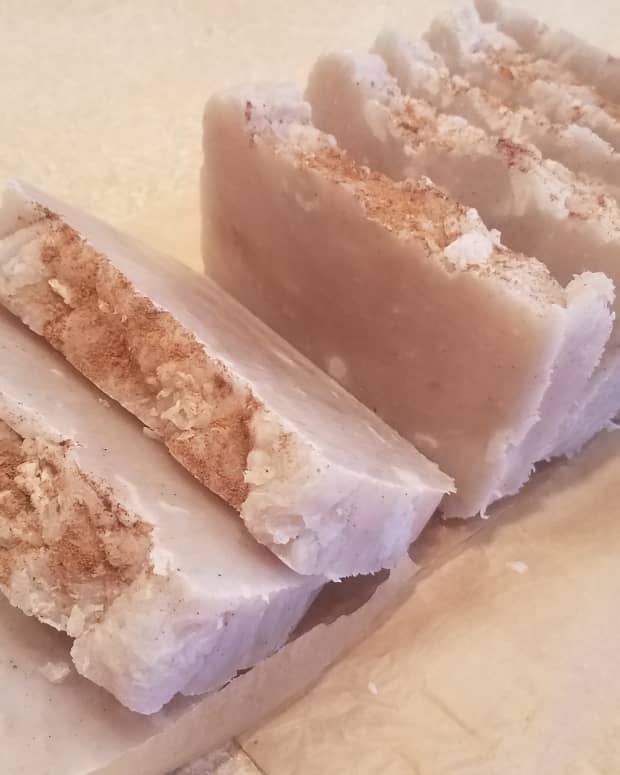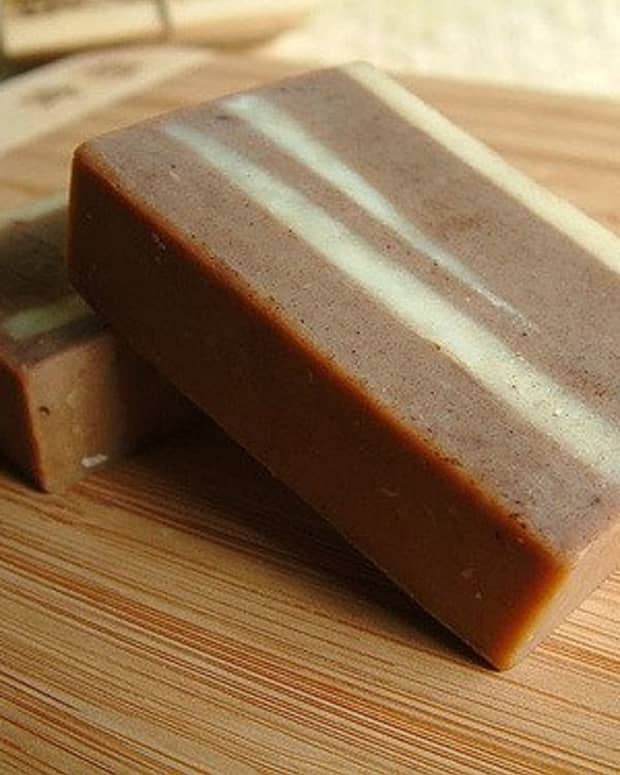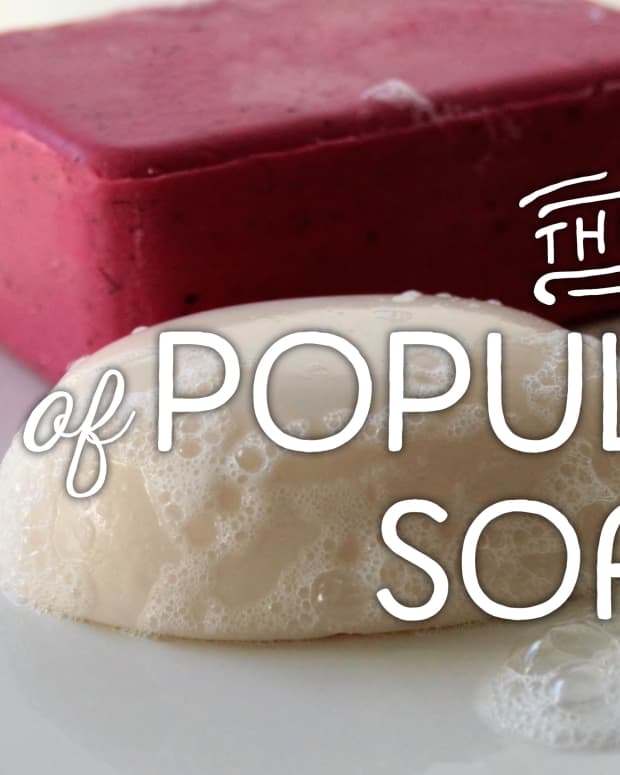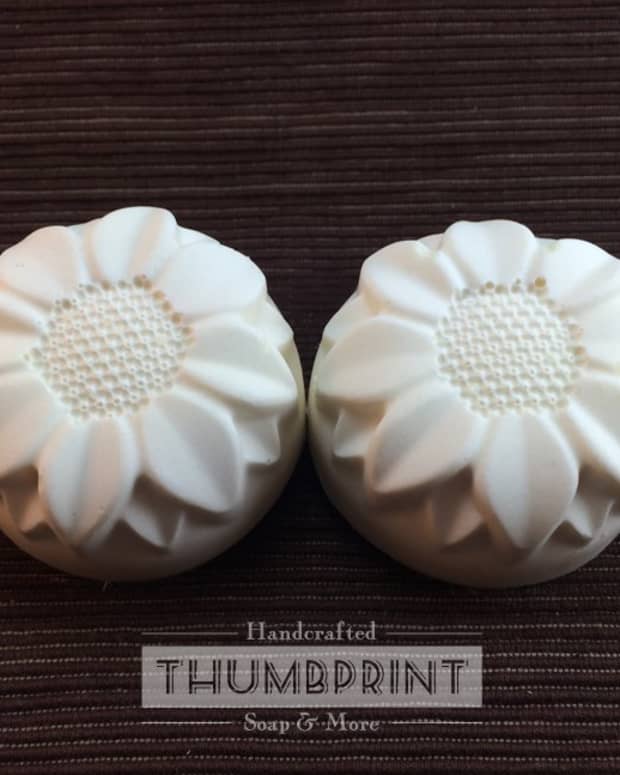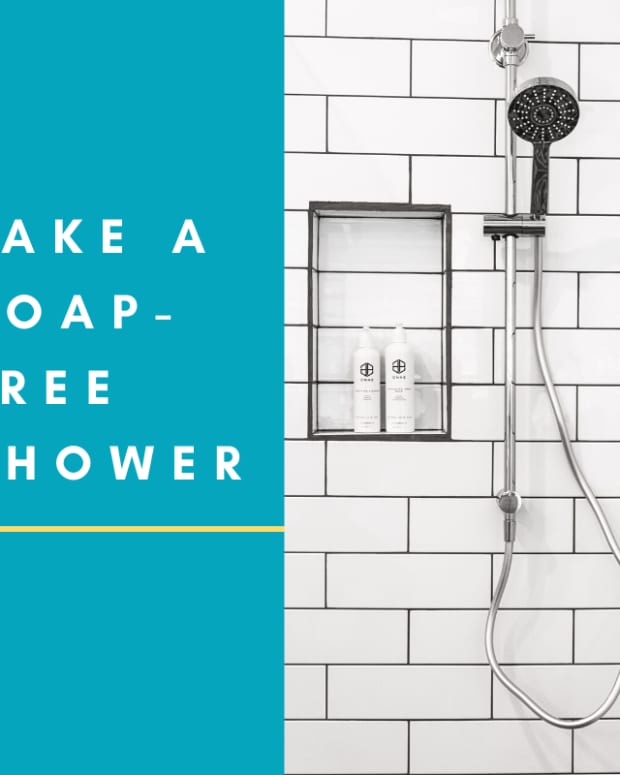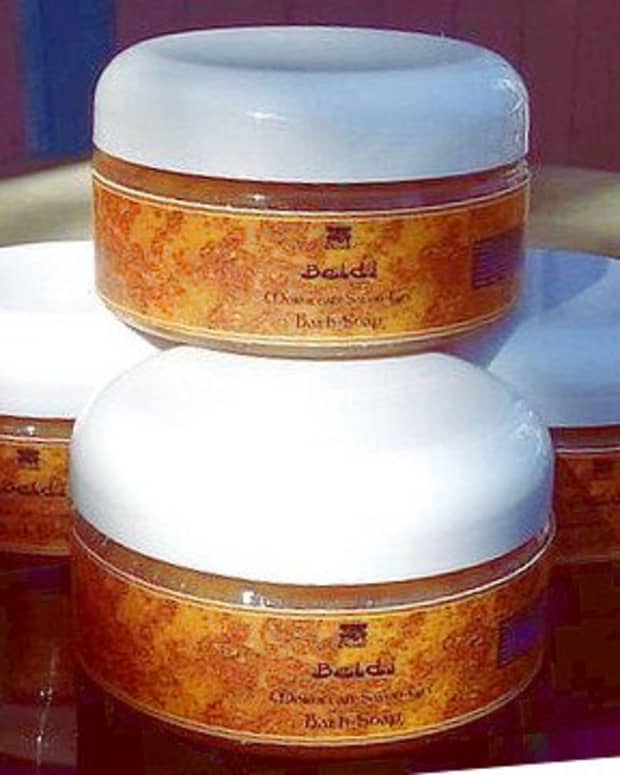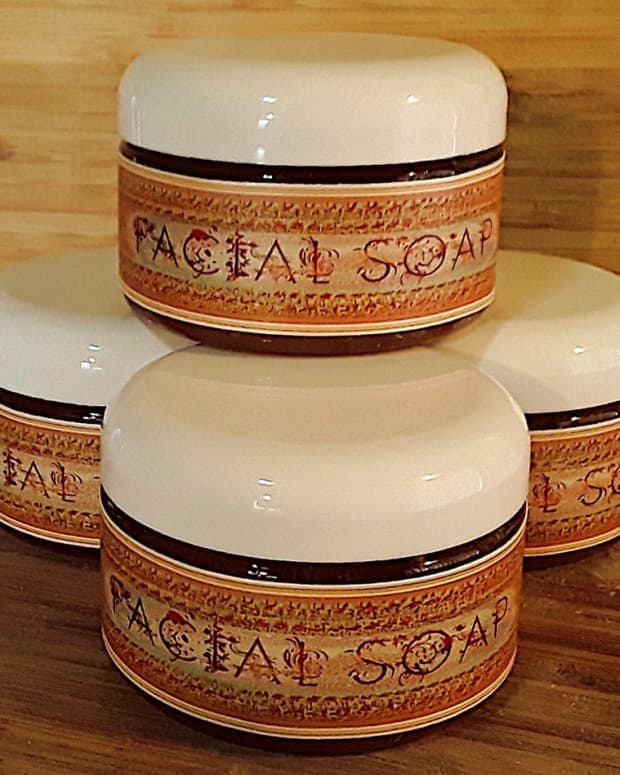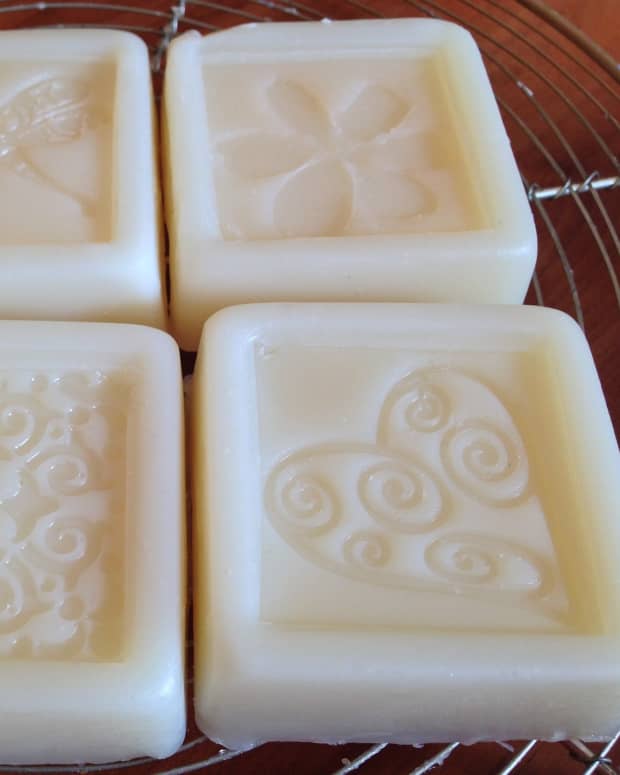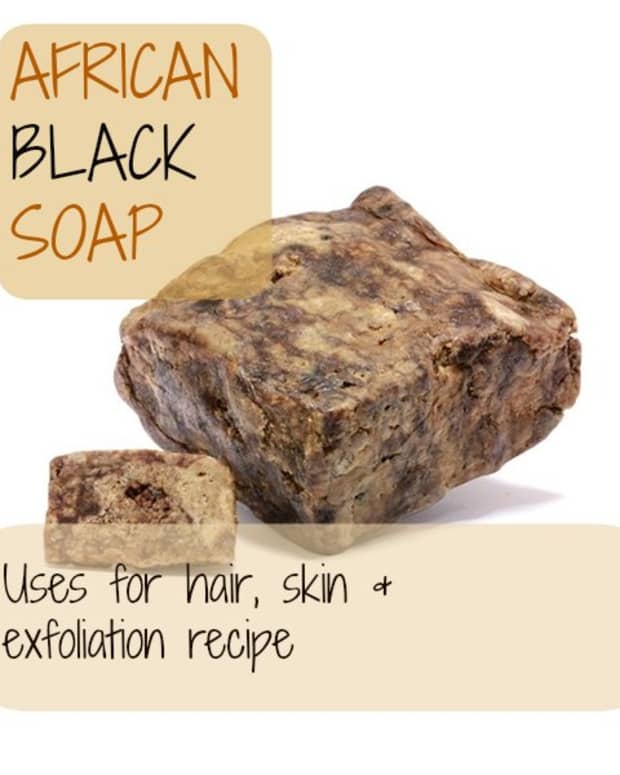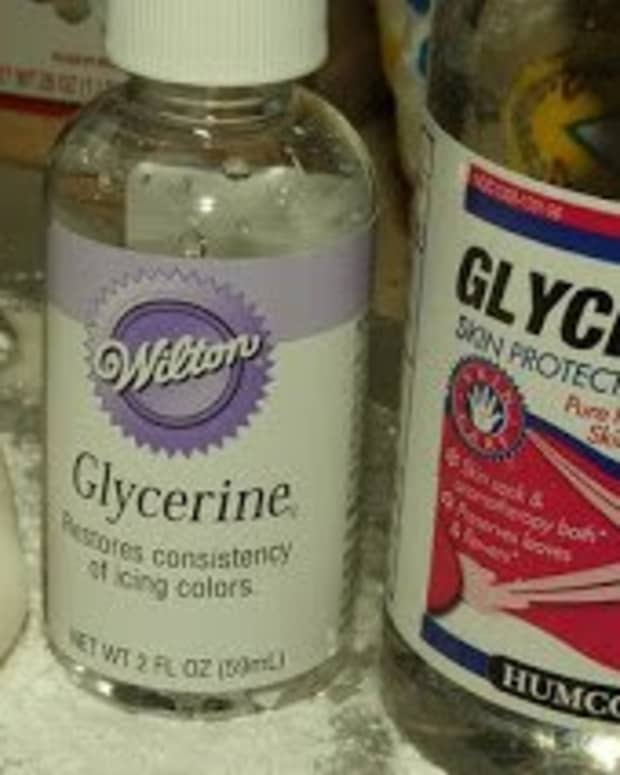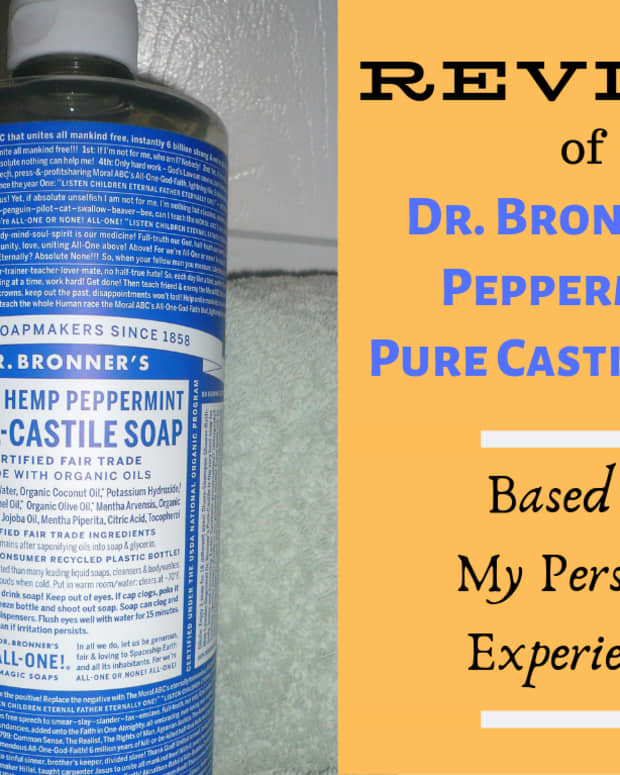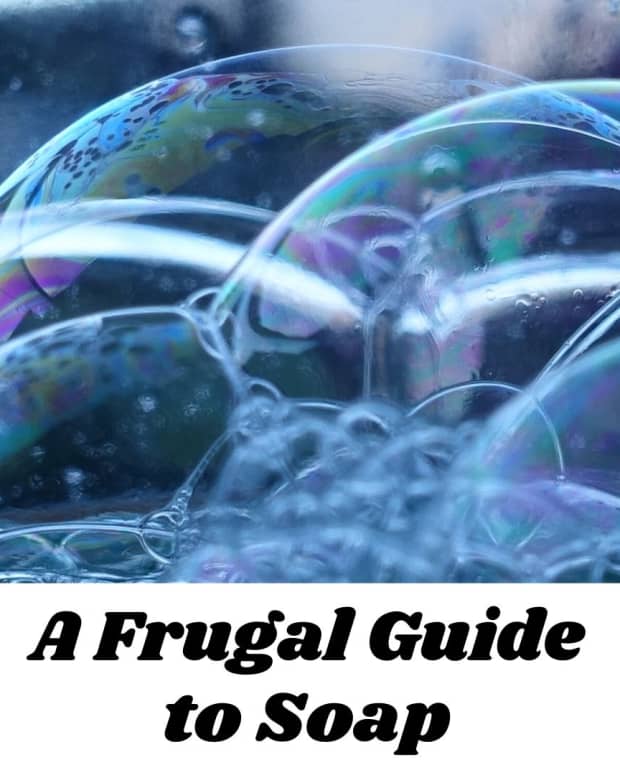The Benefits of Homemade and Handmade Natural Soap
Rebecca loves sharing what she knows about alternative medicine, health, frugal living, fun, animals, and how to live a better life!
What Is True Soap?
True soap is very basic. It consists of oils, lye, and water. Glycerin is created during the process of making handmade soap, also called saponification. That's all that is needed to cleanse the body properly without disrupting the PH levels of the skin.
Store-bought or artificial soap has a plethora of chemicals and detergents. Glycerin is removed for its monetary value and sold to other companies to be placed in more expensive skincare products. Other chemicals are then added to replace glycerin being removed. What you end up buying is a bar of chemicals that irritate and disrupt the skin's natural balance. It's not soap at all! And all of those chemicals get passed on to your liver to process in an attempt to eliminate them from your body.
5 Benefits of Using Natural Soap
- You Know What You Are Putting on Your Skin
- It Can Be Cruelty-Free
- It Contains Glycerin
- You Support Local Businesses
- It Has More Variety
1. You Know What You Are Putting on Your Skin!
More and more people are opting for cleaner, eco-friendly skin care options. We want to know and control what we are putting on our bodies. Skin is our largest organ, and everything that touches it gets filtered through our liver. Almost all or most of homemade soap ingredients can be read in one breath, and you'll know exactly how the product is sourced, how it is made, and what you are absorbing.
- Homemade soap consists of base oils, butters, lye, and additives that are usually from a natural source. Almost any natural additive can be added to homemade soap to treat various skin conditions and complaints while reducing unnecessary chemical intake, resulting in beautiful skin. Natural soap actually relieves irritated skin, many times improving psoriasis and eczema.
- Mass-produced soap is full of chemical cocktails and harsh detergents that usually leave the skin irritated, overly cleansed, and dry. Some chemicals are shown to cause cancer, such as triclosan.
Homemade soap is just a better choice when it comes to cleansing your skin.
More on Triclosan
- FDA Bans Triclosan And 18 Other Chemicals From Soaps : Shots - Health News : NPR
Manufacturers didn't provide data showing the chemicals are safe and effective, the FDA says. It says there's no evidence that they do a better job at preventing illness than plain soap and water.
2. It Can Be Cruelty-Free
Since homemade soap is often crafted in small kitchens or small shops, ingredients are most often sourced and disposed of responsibly and not tested on animals. Even if you have to ask how it is made, you'll get a good honest answer.
Why would you want to support a company that mistreats and tortures innocent animals? Especially when those tests are inconclusive. Do you really need to know that soap squirted into a rabbit's eye hurts? Of course that would hurt. Tests like that teach us nothing other than to hurt another living creature. If you want to buy handmade soap that is also vegan-friendly, look for soaps that don't contain tallow.
Nothing beats natural soap that’s 100% handcrafted, made with love and care in small batches, chemical-free, cruelty-free, and vegan!
3. It Contains Glycerin
Glycerin is a compound that naturally occurs during the saponification process of making homemade soap. It is retained in the finished product. Glycerin, like honey, is a natural humectant. It helps retain moisture in the skin. There is lots of glycerin in handmade soap, which makes it naturally hydrating. Glycerin is responsible for keeping your skin plump and moist for long periods of time.
Mass-produced chemical-based soap removes glycerin during the production process and sells that off to other manufacturers to be put into skin lotions.
4. You Support Local Businesses
Thousands of people love to make soap, myself included. As with any craft or trade, we take great pride in our products and creations. We put a lot of research and work into the final recipe. When you buy soap from a local maker, you are supporting a local business—in many cases, a woman-owned local business! And it's easy to find a local maker online, at a craft fair, or at a farmer's market.
Read More From Bellatory
5. It Has More Variety
You will never get bored with homemade soap options. Ever. It's not possible. There are no limitations to the recipes that can be created, and most soap makers will be willing to make custom blends if asked. No matter your skin type or preferences, someone out there is making a soap with your name written all over it.
Almost anything can be added to create the perfect bar of soap for your skin:
- Clays, which help detox and remove excess oil
- Fruit juices
- Kinds of milk
- Various kinds of butter
- Herbs
- Natural micas for color
- Exfoliants, such as oats, coffee, and seeds
- Essential oils for natural fragrance
- Artificial fragrances. (Even when artificial fragrances are added, your handmade bar of soap is 5x less toxic then store brands.)
There literally is no end to what can be created, and that will be much more gentle and nourishing for your skin and health.
The Process Matters
Handmade soap can be made 3 ways:
- Melt and Pour: This is not the type of soap you want to buy. Melt & Pour soaps are obtainable by buying prepackaged materials at craft stores or suppliers heavily laden with chemicals. Then put into molds. They are still better than store bought soaps, but not the best option.
- Hot Process: This way of making soap utilizes heat after the saponification process has taken place.
- Cold Process: Cold process is the slowest most time-consuming way to make soap but this is the most favored way to craft excellent bars of soap. Back when everyone had to make their own soap, this was the traditional way to make it.
My Story
I started a small home-based business in 2017 making soap. I always wanted to learn and had made many changes in my lifestyle, diet, and skincare regimen before making soap. I was fortunate enough to find an experienced brilliant soap maker that taught me how to make it.
After that, all my views on skincare changed again. I became much more aware of what I put on my skin for any reason. Animal cruelty products have been eliminated from my home. I craft my soap with almost 95% natural ingredients and add additives that can nourish the body, mind, and spirit.
This is the type of hobby that can change your life and the lives of people you care about. If you ask anyone that is involved in this craft, they will tell you how much they love it!
This content is accurate and true to the best of the author’s knowledge and is not meant to substitute for formal and individualized advice from a qualified professional.
Comments
Devika Primić from Dubrovnik, Croatia on October 31, 2017:
Homemade soap is a healthy one.
Rebecca (author) from USA on October 30, 2017:
That's interesting & kinda gross!! lol I've only used plant based milks.
Thanks for your comments.
peachy from Home Sweet Home on October 30, 2017:
do you know that my best friend used her excess breast milk to make soap, she is very clever indeed

